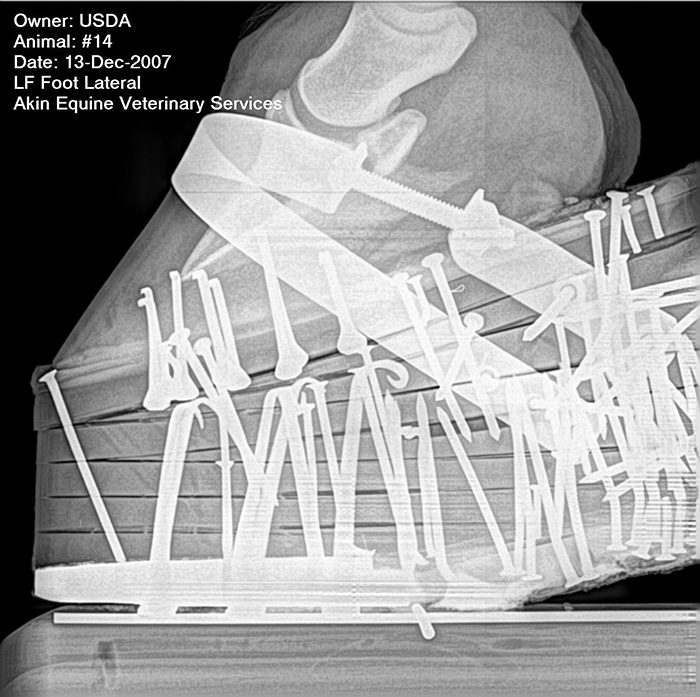The United States Department of Agriculture today announced changes to the Horse Protection Act that aims to put an end to the practice of soring.
As it specifically pertains to farriery, the final rule prohibits the use of all action devices — except certain boots — and all associated lubricants; as well as all pads and wedges, unless prescribed and the horse is receiving therapeutic, veterinary treatment, on all Tennessee Walking Horses and Racking Horses.
It also mandates that a farrier is physically present to assist horse protection inspectors (HPI) at horse shows, exhibitions, sales and auctions “that allow Tennessee Walking Horses or Racking Horses to participate in therapeutic pads and wedges if more than 150 horses are entered.” If 150 or fewer horses are entered, a farrier will be on call.
The final rule, which largely mirrors the bipartisan Prevent All Soring Tactics Act (H.R. 3268/S. 1121), applies only to Tennessee Walking Horses and Racking Horses. This is significant because the original language proposed Aug. 26, 2016, by the U.S. Department of Agriculture’s (USDA) Animal and Plant Health Inspection Service (APHIS), included broad and ambiguous language that included breeds that “perform with an accentuated gait.”
“Congress passed the HPA to end the cruel and inhumane practice of soring horses and stop unfair competition,” according to a statement from APHIS. “Strengthening the HPA regulations and the enforcement of alleged violations is the best way to achieve this goal. In addition, the prohibitions on the use of action devices and pads (with certain exceptions) are consistent with recommendations made by the American Veterinary Medical Association, the American Association of Equine Practitioners, and leading industry standards for equestrian sports.”
More Coverage
A Disgraceful Practice Continues
Serious Challenges To End Soring
Changes Are Coming In The Soring Controversy
Proposed Horse Protection Act Changes Could Hurt Farriers More Than Help Horses
USDA Clear As Mud On Horse Protection Changes
Will Horse Protection Changes Come Before Inauguration Day?
In addition, the new regulation mandates:
• APHIS will license, train and oversee independent, third party inspectors — HPIs — and establish licensing eligibility requirements to reduce conflicts of interest.
• Current Designated Qualified Person (DQP) licenses will remain valid until Jan. 1, 2018, to allow APHIS time to train and license HPIs, as well as ensure there are enough to begin the 2018 show season. Beginning Jan. 1, 2018, management of horse shows, exhibitions, sales and auctions that elect to use inspection services, must appoint and retain an HPI to inspect horses.
• In addition to having a farrier present, management of HPA-covered events must, among other things, submit certain information records to APHIS, provide HPIs with access, space and facilities to conduct inspections.
• The regulatory provisions applicable to the Horse Industry Organization and Associations are removed and are no longer effective beginning Jan. 1, 2018.
• The ban on action devices and associated lubricants will begin 30 days after the publication of the final rule in the Federal Register, which will take place in the coming days.
• The prohibition of all pads and wedges at any horse show, exhibition, sale or auction will take place Jan. 1, 2018.
“This delayed implementation allows ample time to both gradually reduce the size of pads to minimize any potential physiological stress to the horses and prepare horses to compete in other classes,” according to a statement from APHIS.
The rule culminates a lengthy campaign by a number of parties including politicians, animal rights activists, equine veterinarians and farrier organizations.








